 W
WMargaret Bennett is a Scottish writer, folklorist, ethnologist, broadcaster, and singer. Her main interests lies in the field of traditional Scottish folk culture and cultural identity of the Scots in Scotland and abroad. The late Hamish Henderson, internationally distinguished poet and folklorist, said about her: Margaret embodies the spirit of Scotland.
 W
WPeter Buchan was a Scottish editor, publisher, and collector of ballads and folktales. He was born in Peterhead, Aberdeenshire.
 W
WRobert Burns, also known familiarly as Rabbie Burns, the National Bard, Bard of Ayrshire, the Ploughman Poet and various other names and epithets, was a Scottish poet and lyricist. He is widely regarded as the national poet of Scotland and is celebrated worldwide. He is the best known of the poets who have written in the Scots language, although much of his writing is in a "light Scots dialect" of English, accessible to an audience beyond Scotland. He also wrote in standard English, and in these writings his political or civil commentary is often at its bluntest.
 W
WJohn Francis Campbell, also known as Young John of Islay was a Scottish author and scholar who specialised in Celtic studies, considered an authority on the subject.
 W
WThomas Campbell was a Scottish poet. He was a founder and the first President of the Clarence Club and a co-founder of the Literary Association of the Friends of Poland; he was also one of the initiators of a plan to found what became University College London. In 1799 he wrote "The Pleasures of Hope", a traditional 18th-century didactic poem in heroic couplets. He also produced several patriotic war songs—"Ye Mariners of England", "The Soldier's Dream", "Hohenlinden" and, in 1801, "The Battle of the Baltic", but was no less at home in delicate lyrics such as "At Love's Beginning".
 W
WAlexander Carmichael was a Scottish exciseman, folklorist, antiquarian, and author. Between 1860 and his death Carmichael collected a vast amount of folklore, local traditions, natural history observations, antiquarian data, and material objects from people throughout the Scottish Highlands, particularly in the southern Outer Hebrides where he lived, worked, and brought up his family between 1864 and 1882. Alexander Carmichael is best known today for Carmina Gadelica, an influential but controversial compendium of edited Highland lore and literature published in six volumes between 1900 and 1971.
 W
WAllan Cunningham was a Scottish poet and author.
 W
WThe Glenriddell Manuscripts is an extensive collection written in holograph by Robert Burns and an amanuensis of his letters, poems and a few songs in two volumes produced for his then friend Captain Robert Riddell, Laird of what is now Friars Carse in the Nith Valley, Dumfries and Galloway. The two volumes of the manuscript were handsomely bound in calf leather. The first volume of poems and songs was completed by April 1791 and was presented to Robert Riddell, however their friendship ceased due to the unfortunate 'The Rape of the Sabine Women' incident and Robert Riddell died shortly after before any reconciliation could take place. The first volume is partly in Burns's hand with one main amanuensis contributing much of the text in a far neater hand than the author himself and a possible third person contributing to the text. The second volume is entirely in Burns's hand.
 W
WHamish Scott Henderson was a Scottish poet, songwriter, communist, intellectual and soldier.
 W
WJames Hogg was a Scottish poet, novelist and essayist who wrote in both Scots and English. As a young man he worked as a shepherd and farmhand, and was largely self-educated through reading. He was a friend of many of the great writers of his day, including Sir Walter Scott, of whom he later wrote an unauthorised biography. He became widely known as the "Ettrick Shepherd", a nickname under which some of his works were published, and the character name he was given in the widely read series Noctes Ambrosianae, published in Blackwood's Magazine. He is best known today for his novel The Private Memoirs and Confessions of a Justified Sinner. His other works include the long poem The Queen's Wake (1813), his collection of songs Jacobite Relics (1819), and his two novels The Three Perils of Man (1822), and The Three Perils of Woman (1823).
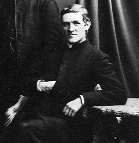 W
WFather Allan MacDonald was a Roman Catholic priest, poet, folklore collector, and activist from the Scottish Gàidhealtachd.
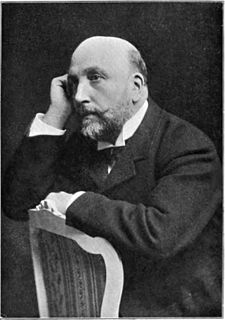 W
WSir Alexander Campbell Mackenzie KCVO was a Scottish composer, conductor and teacher best known for his oratorios, violin and piano pieces, Scottish folk music and works for the stage.
 W
WJames Macpherson was a Scottish writer, poet, literary collector and politician, known as the "translator" of the Ossian cycle of epic poems. He was the first Scottish poet to gain an international reputation.
 W
WLady Evelyn Stewart Murray was a Scottish folklorist who collected Gaelic folk tales and songs. She was also a skilled needleworker and collector of embroidery and lace.
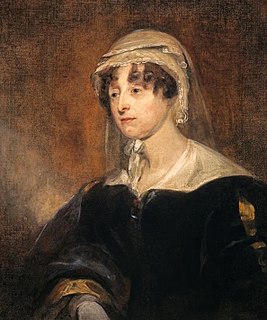 W
WCarolina Oliphant, Lady Nairne – also known as Carolina Baroness Nairn in the peerage of Scotland and Baroness Keith in that of the United Kingdom – was a Scottish songwriter. Many of her songs, such as, "Will ye no' come back again?", "Charlie is my Darling" and "The Rowan Tree" remain popular today, almost two hundred years after they were written. She usually set her words to traditional Scottish folk melodies, but sometimes contributed her own music.
 W
WPoems, Chiefly in the Scottish Dialect is commonly known as the first Edinburgh Edition and the partial second setting has become known as the Stinking Edition. It is a collection of poetry and songs by Robert Burns, first Printed for the Author by William Smellie in Edinburgh and published or Sold by William Creech of Edinburgh on the 17 April, an announcement being made in the Edinburgh Advertiser on that date, although the date 21 April 1786 is given by a few authors. The Kilmarnock Edition made Robert Burns Caledonia's Bard whilst the 'Edinburgh Edition' elevated him into a position amongst the world's greatest poets.
 W
WPoems, Chiefly in the Scottish Dialect is commonly known as the Third or London Edition and sometimes the Stinking Edition. It is a collection of poetry and songs by Robert Burns, printed for A. Strahan; T. Cadell in the Strand; and W. Creech, Edinburgh. MDCCCLXXXVII The date of publication for the London Edition was in November 1787, however Strahan and Cadell had previously advertised for sale the 'Second' or 'Edinburgh Edition' using the 500 or so copies that William Creech still had that were unsold. The successful selling of these made a truly new 'London Edition' a commercially viable enterprise.
 W
WPoems, Chiefly in the Scottish Dialect was issued during the poet's lifetime In Two Volumes. The Second Edition Considerably Enlarged. It is a collection of poetry and songs by the poet Robert Burns, printed for T. Cadell, London, and W. Creech, Edinburgh. M,DCC,XCIII The date of publication for this edition was 16 February 1793 as advertised in the Edinburgh Courant. The successful demand for the 1787 Edinburgh Edition seems to have encouraged Creech to publish this new edition as the 1787 volume had been sold out since around 1791.
 W
WAllan Ramsay was a Scottish poet, playwright, publisher, librarian, and impresario of early Enlightenment Edinburgh.
 W
WRobert Burns's Commonplace Book 1783-1785 is the first of three commonplace books that were produced by the poet. The contents cover drafts of songs and poems, observations, ideas, epitaphs, etc.
 W
WJeannie Robertson was a Scottish folk singer.
 W
WLady Dorothea Louisa Ruggles-Brise, was the daughter of the 7th Duke of Atholl. She was an expert about and a collector of Scottish traditional music.
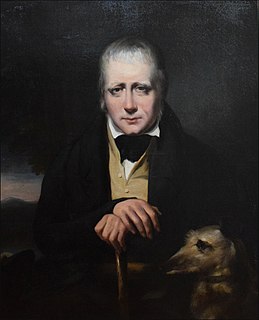 W
WSir Walter Scott, 1st Baronet, was a Scottish historical novelist, poet, playwright, and historian. Many of his works remain classics of both English-language literature and Scottish literature. Famous titles include the novels Ivanhoe, Rob Roy, Waverley, Old Mortality, The Heart of Mid-Lothian and The Bride of Lammermoor, and the narrative poems The Lady of the Lake and Marmion.
 W
WFor the English author, see Sheila Stewart (author)
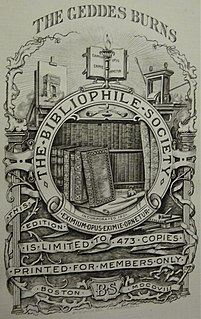 W
W'The Geddes Burns' is a copy of Robert Burns's 1787 Poems, Chiefly in the Scottish Dialect with twenty-seven extra pages with twelve poems and songs in Burns's handwriting bound in, and a letter to Bishop John Geddes from the poet, written at Ellisland Farm.
 W
WThe Merry Muses of Caledonia is a collection of bawdy songs said to have been collected or written by Robert Burns, the 18th-century Scottish poet.
 W
WGeorge Thomson (1757–1851), born at Limekilns, Fife, Scotland, was a noted collector of the music of Scotland, a music publisher, and a friend of Robert Burns. He was clerk to the board of trustees in Edinburgh for 60 years. His A Select Collection of Original Scottish Airs for the Voice came out in five volumes between 1799 and 1818, and included contributions from Burns, Walter Scott and Thomas Campbell. Thomson published folksong arrangements by Joseph Haydn, Ludwig van Beethoven and Johann Nepomuk Hummel.